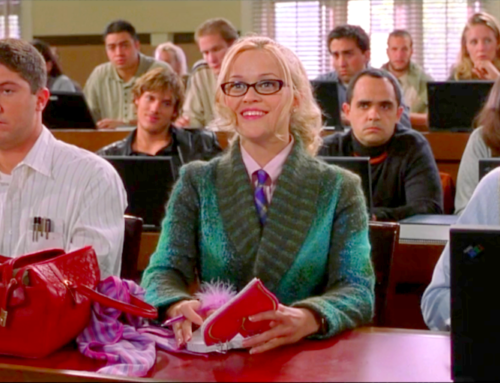Hi, I’m Yelena and I am an orthopaedic trauma surgeon, an orthopaedic surgeon that specializes in treating fractures (broken bones). Because trauma is by nature unpredictable, no day is exactly the same, which is how I like it. However, I’ll take you through an average day when I’m in surgery (clinic days, when I am in the office, are more predictable).
5:30 am-6:30 am – Preparation/Home tasks
I check my phone when I wake up to see if my OR (operating room) schedule has changed from when I last checked it the previous night. If I was not on call the night before, I might not know about new patients who came in who need surgery, and therefore I quickly skim the patient list. If any of the surgeries are not standard and I need special instruments or implants (plates/screws), I call the representatives of those companies and let them know I will be needing them. I also do my makeup (on surgery days, I don’t like the feeling of the mask smudging my face, so I do eyes only), walk and feed my dog, and grab breakfast.
6:30 am-7:30 am – Rounds & Morning tasks
I see postoperative patients who are still in the hospital, and help my physician assistants (PAs) in caring for them. We work as a team, and I am the “captain of the ship” in terms of fracture care. I direct the care that my PAs provide during the day — in clinic, emergency room, and on the floors. Fortunately, they are very independent. They only come to me if there is a question they cannot answer. They also assist me in the OR.
I also see fracture patients who came in overnight and determine plans for them (surgery versus no surgery, weight bearing status, etc). If they are going to the operating room that day, I fine-tune the day’s surgery schedule with the OR front desk to make sure everyone knows the plan. This is one of the most hectic but fun parts of my job – within a few minutes I meet the patient, explain their problem, and get them to agree to let me cut them open. It requires a confidence and finesse I did not have growing up – but it is absolutely a teachable, and learnable, skill.
7:30 am-5:00 pm (times vary) – Operating room
These days vary depending on how busy things are and how many surgeries I have. Sometimes, I just have one case and I’m done at 10am and free to pursue other things like catching up on research. Other days, I work until 10pm basically without stopping, and it feels like my feet might fall off.
My surgery cases, at least 95% of them, involve broken bones. I work basically everywhere in the body (except head, ribs and spine) and on people of all ages. On any given day, I could have any or all of the following:
-
-
a simple “bread and butter” common surgery like fixing a broken hip or ankle
-
a more complicated surgery like a gunshot wound that shattered a femur and requires cleaning and then placing a rod into the bone
-
very complex injuries such as multiple foot fractures with ligament damage that require several procedures
-
planned complex cases such as malunion (where bone heals but improperly), nonunion (where bone does not heal at all), or deformity correction
-
multiple injuries called polytraumas that involve managing timing with other sub-specialties like vascular surgery, who may be working on the patient at the same time
-
and much more.
-
No fracture or patient is ever exactly the same. Surgery is like cooking – you have a recipe to follow (there are certain common ways to fix fractures), but a great chef will add a pinch here or take away half a cup there, and every dish is unique.
During the day between surgeries, I am also responsible for any new patients with orthopaedic issues in our hospital, and run to see them in between cases so I don’t fall behind. I also use the restroom and eat if I can, but that doesn’t always happen. I’m very good at “eating on the run.”
5:00 pm-7:00 pm (varies) – Home and preparation for next day
My days, whether they end at 3 pm or at 11pm, always involve certain preparations for the next day. First, I make sure to read at least one journal article in my field – it is always changing, and I would suggest that people who want to master a field make it a habit to educate themselves a little every day about it, so that you gain and maintain expertise. I also prepare for my cases the next day (if I have some that I already know about) by reading about the surgical approach, and sometimes drawing out what I will do. Because of my academic status, I also have to prepare lectures, have conference calls, and do several other job-related things. I also communicate with other surgeons around the world on Twitter via my account, InvictaOrtho. The work doesn’t stop when I get home – which is certainly why surgery isn’t for everyone as a career.
After all this is done, I make sure to exercise; my job requires a lot of stamina, and I would not be able to work with as much energy as I do if I didn’t keep a regular exercise schedule. I also write daily in a journal (good for mental health), read for at least 15 minutes for fun (sometimes, this happens on the elliptical at the gym) to turn my thoughts toward something other than work.
In addition to all that, when I am “on call” (one weekday a week and one weekend a month) I am responsible for all the patients that come in overnight. Usually, between the ER and my PA who is also on call, they stabilize things for the morning so I don’t have to come in, but I answer all phone calls, and if something emergent cannot wait until the morning (bad car accident with severe injuries where bones pierce the skin, near-amputations, etc), then I have to go back to the hospital. If I end up in the operating room again from 1am to 4 am after a full day already, I do not have a “day off” the next day – the work goes on starting with new surgeries at 7:30. Fortunately, this is rare.
All in all, I work hard and I play hard. It takes 14 years after high school (4 years college, 4 years medical school, 5 years of orthopaedic surgery residency, and 1 year of orthopaedic trauma fellowship) to get where I am, and a lifetime after that to get good at what I do. But it truly is the most satisfying work, and I could not imagine doing anything else.
Yelena Bogdan, MD is an orthopaedic trauma surgeon (a surgeon specializing in treating broken bones). She is an avid educator, mentor, and passionate advocate for excellent trauma care. An immigrant who spent much of her life as a New York City girl, she now works in Pennsylvania, and chronicles her work and life on Twitter under her handle InvictaOrtho.











